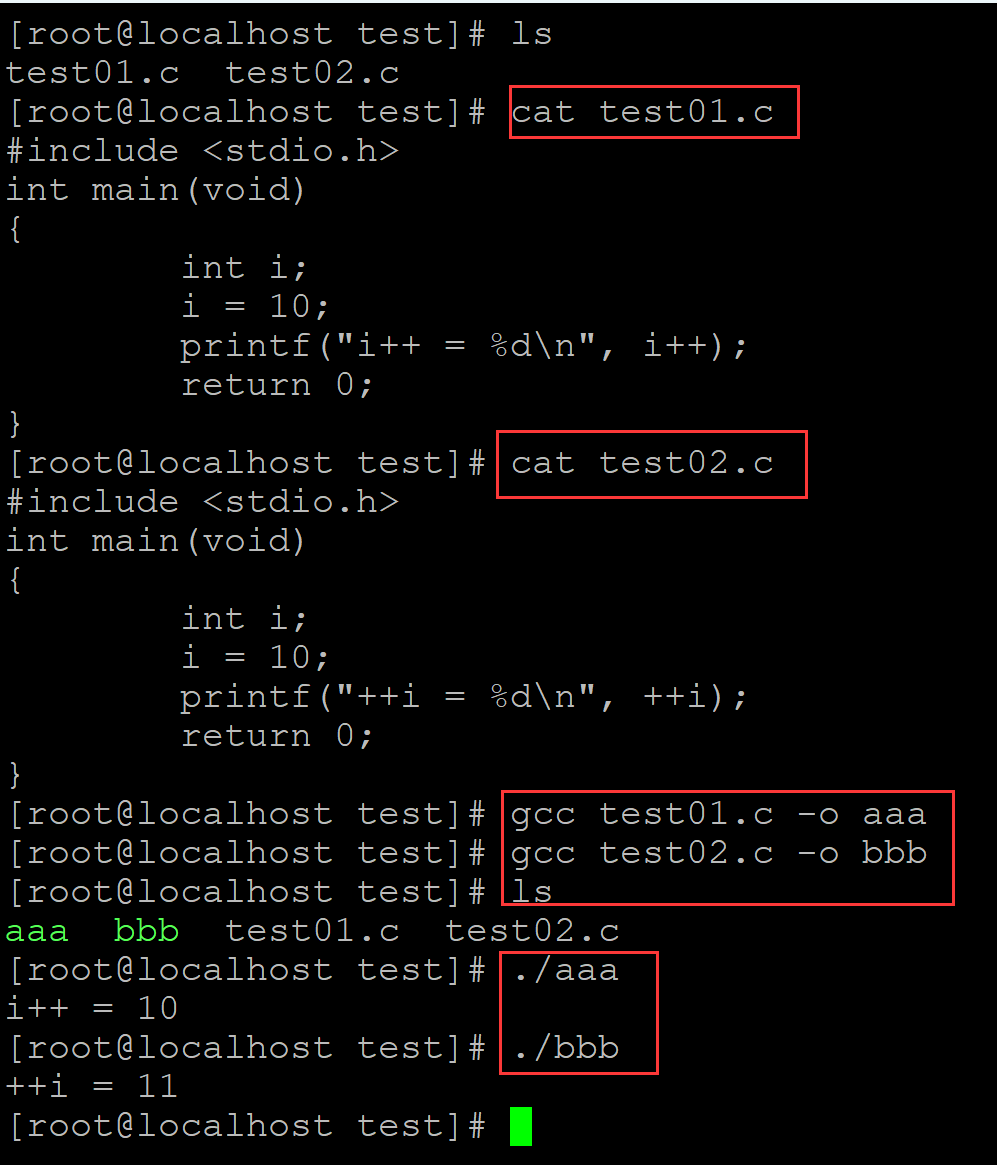c语言中后置递增运算符和前置递增运算符的区别
001、
[root@localhost test]# ls ## 两个测试c程序 test01.c test02.c [root@localhost test]# cat test01.c ## 后置递增运算符,表达式的值等于递增前的表达式的值 #include <stdio.h> int main(void) { int i; i = 10; printf("i++ = %d\n", i++); return 0; } [root@localhost test]# cat test02.c ## 前置递增运算符, 表达式的值等于递增后的表达式的值 #include <stdio.h> int main(void) { int i; i = 10; printf("++i = %d\n", ++i); return 0; } [root@localhost test]# gcc test01.c -o aaa [root@localhost test]# gcc test02.c -o bbb [root@localhost test]# ls aaa bbb test01.c test02.c [root@localhost test]# ./aaa i++ = 10 [root@localhost test]# ./bbb ++i = 11

.






【推荐】国内首个AI IDE,深度理解中文开发场景,立即下载体验Trae
【推荐】编程新体验,更懂你的AI,立即体验豆包MarsCode编程助手
【推荐】抖音旗下AI助手豆包,你的智能百科全书,全免费不限次数
【推荐】轻量又高性能的 SSH 工具 IShell:AI 加持,快人一步
· 震惊!C++程序真的从main开始吗?99%的程序员都答错了
· 【硬核科普】Trae如何「偷看」你的代码?零基础破解AI编程运行原理
· 单元测试从入门到精通
· 上周热点回顾(3.3-3.9)
· winform 绘制太阳,地球,月球 运作规律
2023-09-20 linux 中字符串处理函数 ${i%%.*}
2023-09-20 linux 中实现部分取反
2023-09-20 linux 中find命令同时对多个关键字进行查找
2023-09-20 linux 中 dirname和basename
2022-09-20 清华anaconda开源镜像下载站
2022-09-20 conda 中如何移除默认源
2022-09-20 conda中如何移除指定的源